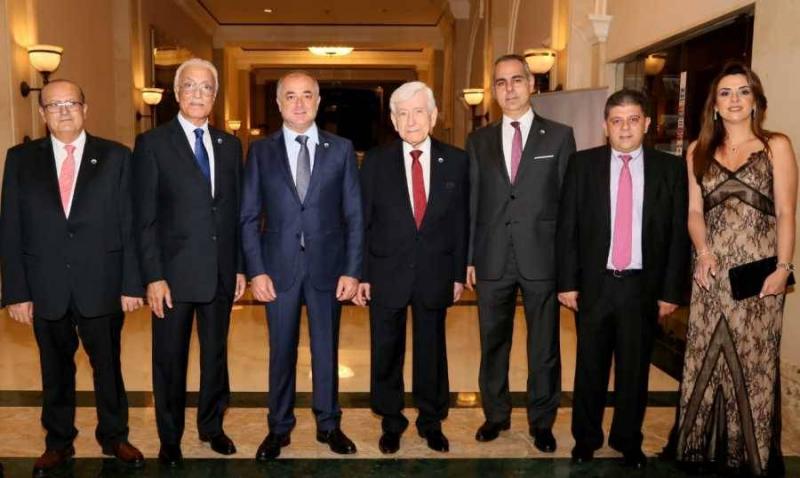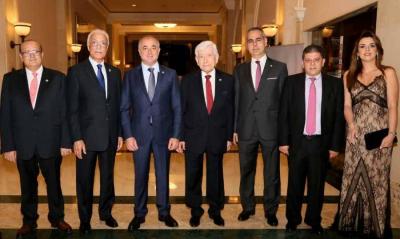Deputy Speaker of the Parliament Elias Boustani affirmed during the annual dinner of the Lebanese Orthodox Youth Association at theVenice Hotel, hosted by its president Salah Rustum, that the crisis of electing a president is not easy and that challenges cannot lead to a solution. He pointed out, "Next Wednesday there will be a session to elect a president, but no one expects that a president will be elected in this session. Why? Because through challenge, no one can elect a president of the republic, and we are facing a challenge. Every deputy says they will elect a president, so why haven’t they done that? The reason is the absence of genuine dialogue, and no one is talking to each other from a standpoint of open and democratic dialogue. Our constitution allows a deputy to boycott the session if they see no benefit in its convening. Proof of my statement is that both sides have threatened to boycott the sessions. The way out is for us to sit together. Through challenge, we will not reach a solution. Even if a president is elected through challenge, the problems and crises of Lebanon will not be solved. A shared conviction is required among all parties to achieve a qualitative shift by having a president and a prime minister who cooperate for the benefit of Lebanon through a government that has a roadmap for reforms."
He added, "We need in Lebanon to re-educate, and our efforts should focus in this direction, towards true political culture in our societies, universities, and schools. This culture raises the generations of tomorrow and those yet to be born on honesty, integrity, freedom, and genuine democracy, and these cultural values lead Lebanon to a stable and prosperous state."
Regarding the issue of Syrian displacement, he stated, "The issue of displacement must be resolved as it negatively impacts Lebanon economically, socially, health-wise, and educationally. Forty percent of Lebanon's losses are due to Syrian displacement. Electricity, water, health, schools, subsidized food, and subsidized medicine. We have two economies in Lebanon, not just one. Consequently, the international community, under the banner of human rights, prevents solving the problem. Today's situation is different from the past, and there is a consensus among Lebanese that this issue must be addressed to escape our economic crisis."
Concerning the International Monetary Fund, he said, "We must reach happy conclusions, not because we need four or five billion dollars, but to restore international trust and the community's confidence in Lebanon. If trust is restored, the Lebanese can rejuvenate their country's economy and restore confidence in banks and invest in Lebanon. This requires, first and foremost, the election of a president and a government along with reforms."




